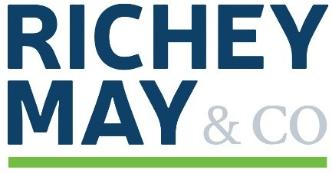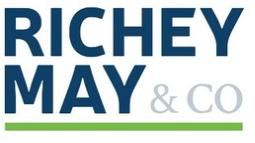Free signup for more
- Track your favorite companies
- Receive email alerts for new filings
- Personalized dashboard of news and more
- Access all data and search results
Content analysis
?| Positive | ||
| Negative | ||
| Uncertain | ||
| Constraining | ||
| Legalese | ||
| Litigous | ||
| Readability |
H.S. sophomore Avg
|
|
New words:
ACL, agricultural, ALCO, American, attend, attitude, brand, career, CBLR, CEO, charity, choice, coast, college, context, correlation, COVID, decision, deepen, dental, destruction, differentiate, disease, dissemination, EAD, ease, encompassed, female, forbearance, forgivable, forgiven, foster, Fostering, fraction, FRST, fulltime, gathering, great, greatly, Guide, Handshake, Head, healthcare, heard, hotel, image, incapable, innovation, interact, Interbank, intervening, Intranet, ix, job, learn, learning, LGD, lost, macroeconomic, maker, malware, mandated, media, misuse, nonvoting, onset, outreach, PA, package, Panacea, pandemic, Paycheck, PCD, PD, PDs, pet, philanthropy, placement, popular, PPP, proactively, prosecute, prosperity, published, rebranding, recruitment, reevaluate, referral, reliant, reside, restaurant, reverted, reverting, Richey, robust, salary, satisfaction, SERP, solid, suspend, sweeping, talent, Thursday, ticker, trillion, tropical, uncollectible, unconditional, Uniform, uninterrupted, universe, unknown, unprecedented, unstable, unsuccessful, VA, valuable, verification, viii, voice, volunteer, volunteerism, Warehouse, wealth, winter, withstand, workforce, workplace, worsen
Removed:
abatement, accelerate, acceptance, acquirer, adapting, aggregated, Alesco, amend, appraiser, assumption, assure, bargaining, began, behavior, BHCA, bringing, Brockwell, brokerage, cent, channel, choose, client, collecting, comparability, comparing, complementary, comprise, computer, concept, conclude, concurrently, counterparty, credited, decide, deductibility, delivery, demographic, dependence, Derrico, destabilizing, Deteriorated, disaster, discovered, Discrete, driver, Eastern, electrical, embedded, enactment, ending, environmentally, ethical, exacerbated, execute, explicit, externally, fact, failed, failing, FICO, finite, flat, forgone, forward, founded, GAB, George, Georgia, Grove, HarVest, Haymarket, human, Huntingtown, identifiable, illiquidity, inaccurate, indemnification, injected, insignificant, interrelated, Joe, lag, leadership, led, ledger, legacy, licensed, lieu, loyal, manageable, Mandatorily, merged, metropolitan, misleading, Moody, multiplying, narrow, nation, nearest, necessity, negligible, nonaccretable, noncompliance, obtainable, offsetting, oil, originator, OTTI, PCI, PGFSB, planning, played, Porter, premerger, premier, pressure, Prince, produce, profitably, provisional, rarely, rated, realizable, recalculate, reclassified, recover, redeem, region, regulating, reimbursed, relation, reliance, remediation, remove, restoration, revaluation, risky, Roderick, role, rounding, run, salability, score, Seat, securitized, securitizer, settle, Shady, Shearin, shortfall, SNL, speculative, spike, sufficiently, takeover, top, traced, transferring, treated, treatment, unanticipated, unexercised, unforeseen, unimpaired, verify, vested, viewpoint, wholly
Filing tables
Filing exhibits
FRST similar filings
Filing view
External links


